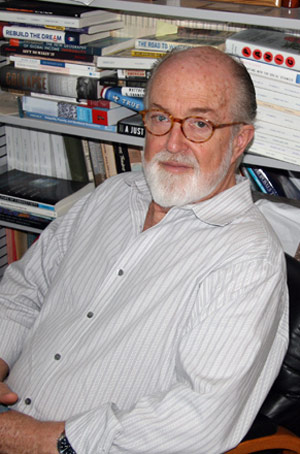Original Thinkers
Craig Reinarman: Professor focused on costs, societal harms of nation’s drug laws
 Craig Reinarman didn’t have much company when he began challenging the nation’s drug policies in the 1970s.
Craig Reinarman didn’t have much company when he began challenging the nation’s drug policies in the 1970s.
The UC Santa Cruz sociology professor who joined the campus in 1989 has devoted much of his career to studying various aspects of drugs and drug policy, including use and abuse patterns, addiction and incarceration rates, treatment options, health risks, and the relationship between drugs and violent crime.
“Drug policy in the United States is the most repressive and ineffective in the industrialized world,” said Reinarman decades ago, pointing out the costs to taxpayers of drug laws and policies quadrupled in the ‘80s and ‘90s with no real reduction in supply or abuse.
In the late 1990s, Reinarman led a federally funded in-depth study of marijuana use across three countries designed to answer fundamental questions, including whether it leads to the use of “harder” drugs, what its long-term effects are, and whether users can become dependent on it.
Though advocating the decriminalization of marijuana wasn’t popular when Reinarman began, the nation has caught up with him. Today, four states and the District of Columbia have voted to legalize marijuana for recreational use and another 23 states allow its use for medicinal purposes.
Reinarman didn’t just publish his findings in scholarly journals. He co-edited a book on crack and public policy, regularly contributed opinion articles to the popular press, and lobbied in the policy arena. He is also co-editor of a new book, Expanding Addiction–Critical Essays.
“I’ve spent a lot of my career debunking the lies perpetrated by drug warriors and bureaucrats in this country, and I have consistently pushed for a more humane, effective way of dealing with the problem of drug abuse,” Reinarman has said.
“Our drug policy isn’t about safety or public health,” he says. “It’s about whose morality is going to be dominant. One hundred years from now, people will look back at our drug policies the way we look at witch burning now.”